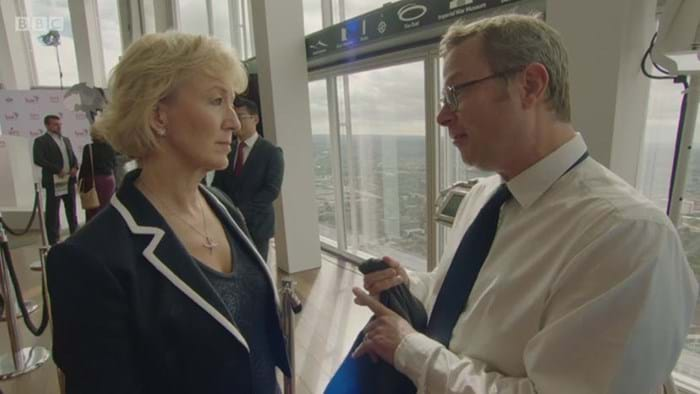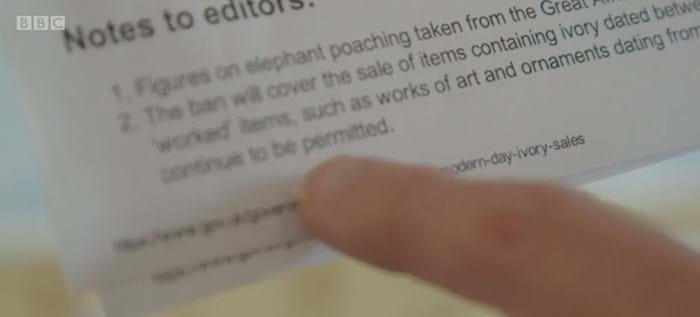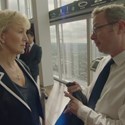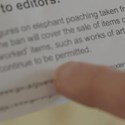The two-part BBC One documentary, called Saving Africa’s Elephants: Hugh and the Ivory War, which concluded last night, investigated the demand side of the illegal ivory and rhino horn trade in China and Vietnam, and the supply side of poaching in Africa.
The second episode concluded with Fearnley-Whittingstall, having failed to obtain a commitment from Environment minister Andrea Leadsom on a total UK ban on ivory trade, asking: "Can concerns for a small section of the antiques trade really outweigh doing everything we can to save the elephant?"
The programme showed Fearnley-Whittingstall confronting the minister about a total ban on the same day in September that the government announced it would prohibit post-1947 ivory and require the antiques business to prove the age of ivory it wishes to trade.
Leadsom said that "a ban on modern ivory is the first step," when reminded by Fearnley-Whittingstall of the Conservative Party’s 2015 manifesto pledge to introduce a total ban.
The minister would not respond when asked if she would look at banning pre-1947 ivory if "there is clear evidence that pre-1947 ivory is implicated in export to Asia where it... stimulates the trade and plays a role in covering the ivory from poached African ivory".
Industry responds
The antiques sector took to Twitter to argue its case last night.
Silver dealer Michael Baggott tweeted: "The weight of ill-informed celebrity opinion on banning antique ivory will destroy history unless all television history and antiques folk speak up."
Christina Trevanion, partner at auctioneer Trevanion & Dean, tweeted: "The widespread destruction of our arts and heritage is not the answer to eliminating the barbaric trade in modern ivory."
Dealer Peter Petrou tweeted: "Many people want trade in antique ivory made illegal - what then - cultural destruction? The UK does not contribute to the death of elephants."
Petrou also commented that the BBC had not allowed experts from associations LAPADA or BADA a "right of reply to well-meaning but flawed research".
Associations Speak Out
Mark Dodgson, secretary general at BADA, told ATG: “No further material about the UK antiques trade was provided (in this programme), yet without reasoned explanation it concluded that all trade in antique ivory should cease. The language used was emotive and inappropriate. Labelling the UK’s historic objects as Britain’s ivory stockpile showed a clear lack of understanding.”
He added: “We all want to ensure that only genuine pre-1947 ivory is offered for sale in Britain, so we look forward to working with our colleagues in BAMF to help the government ensure this is the case.”
Rebecca Davies, chief executive of LAPADA, said: “Our members are deeply concerned about the plight of the African elephant and would support any initiative that would eradicate poaching. However, we are steadfast in our belief that a closely regulated trade in genuine antiques and works of art with ivory elements does not support the illicit market in the Far East who are the known consumers of modern-day poached ivory.
“Change must be effected at the root of the problem and the trade would welcome a discourse with conservationists to find a viable solution which protects elephants but not at the sacrifice of our shared cultural and artistic heritage.”
In a statement, issued on Monday 31 October, Kensington MP and BADA president Victoria Borwick argued the fight against poaching should be "directed against modern ivory and tackling the problem at source."









